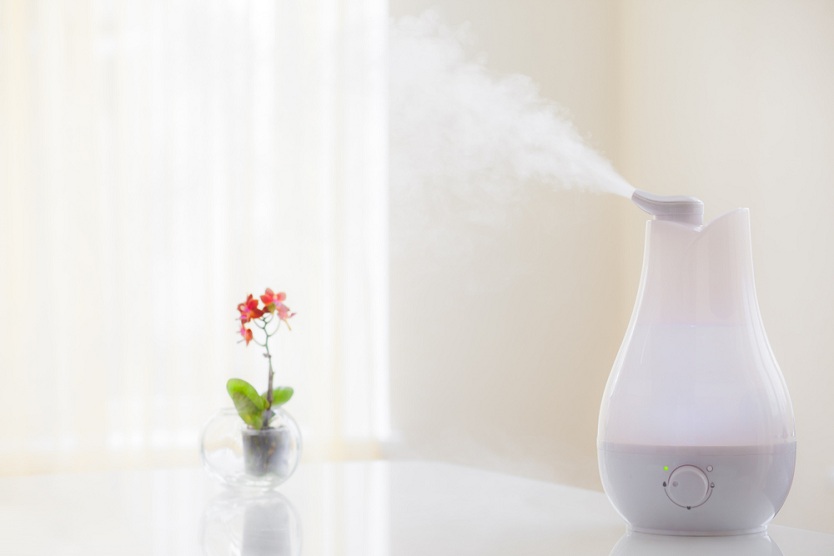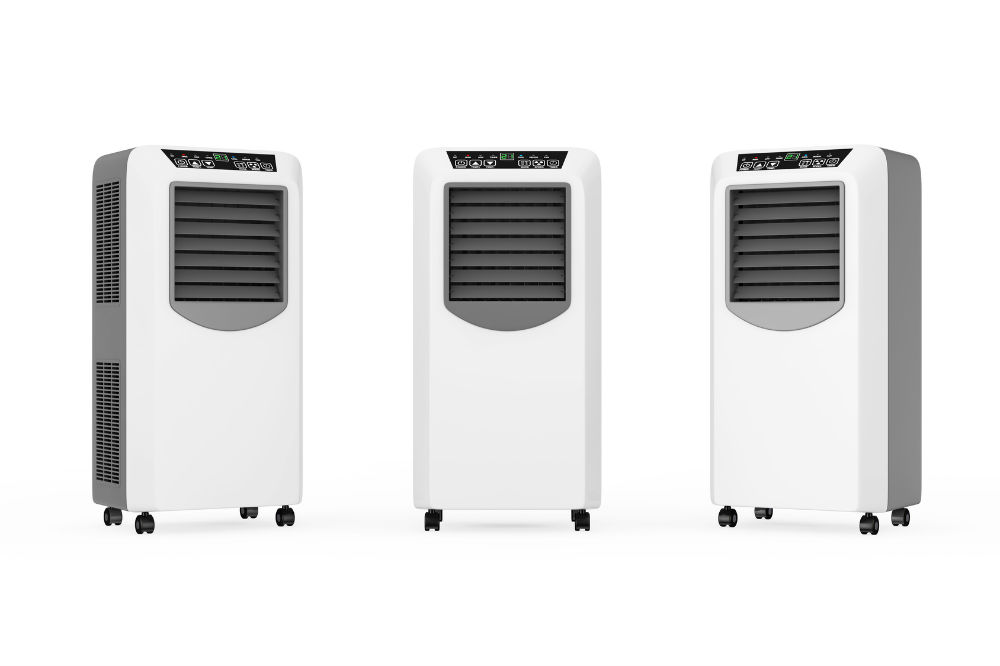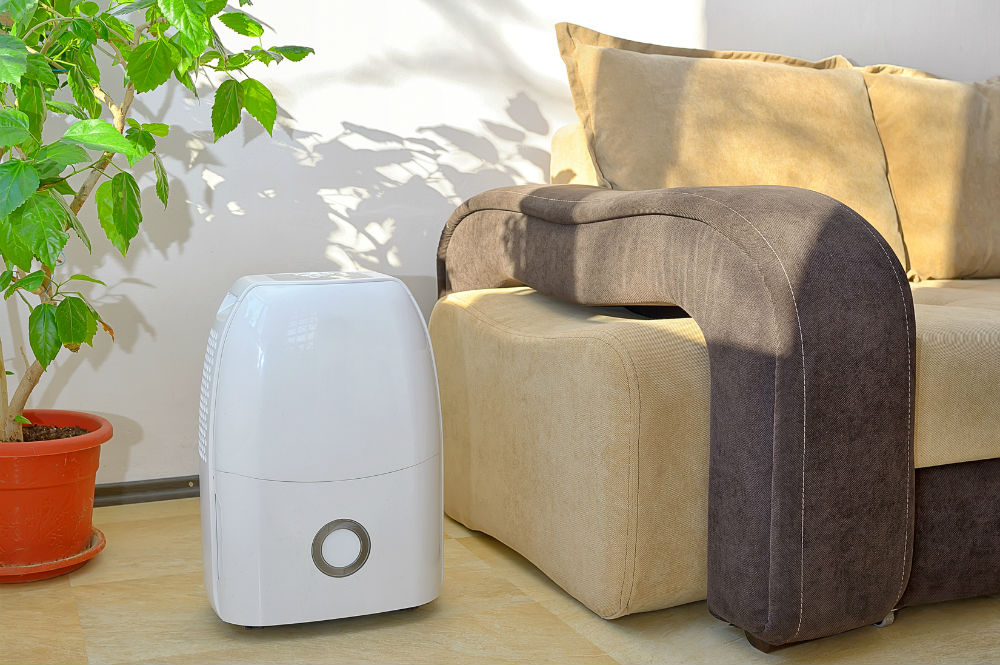Have you noticed you suffer from dry eyes or cough when you wake up?
Maybe your skin is drier than usual, causing itchy rashes on your body. Dry air can affect your body in many ways, including skin, internal organs, and even bones.
It may cause dryness, irritation, nosebleeds, and nasal congestion. If you have asthma or the common cold, dry air can worsen your condition and make your recovery longer.
If you currently use a humidifier to regulate indoor air, then you know the onboard filters are important to keeping you safe.
In this short guide, we discuss when / how frequently you should clean and/or replace the filters in your humidifier to retain the benefits.
WHAT ARE HUMIDIFIERS AND HUMIDITY?
A humidifier is an indoor device that could change the humidity levels in one room or house, depending on its size and power.
A humidifier is close to the opposite of a dehumidifier. It helps improve air quality. Humidifiers can add moisture into the air, whereas dehumidifiers can remove it.
Thanks to modern technology, a humidifier can measure the humidity in the room and add just enough water to keep things at the right level.
In addition, most machines include controls that could determine whether they switch on and off, what sort of moisture-causing mist is introduced into the atmosphere, and what temperature said vapor would probably be.
Most home care specialists recommend that the air inside your home should be at least 50% humid during the warmer months and at least 30% during the colder months.
HUMIDIFIER TYPES
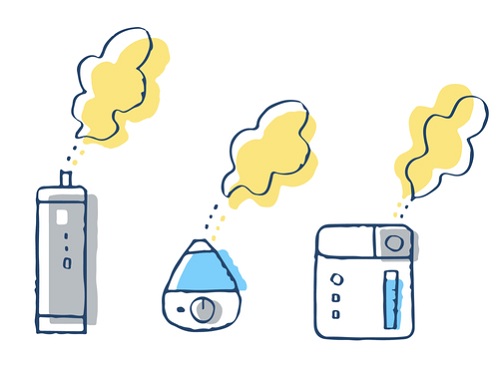
Each of the four basic humidifier types has its unique filtration setup and maintenance issues.
The main types of humidifiers include the following:
1. CENTRAL/WHOLE HOUSE HUMIDIFIERS
This is the biggest style of humidifer available today because it’s built directly into the air conditioning system.
They can be installed either as part of a central air conditioning system or via your basic HVAC ductwork for house heating purposes.
2. EVAPORATIVE/COOL MIST HUMIDIFIERS
Cool mist and evaporative humidifiers are considered one of the cleanest humidifiers.
They are simple appliances that rely on a moistened wick, fabric plate, or filter to turn water into vapor and a fan system to disperse the water vapor into the air.
However, one of the drawbacks is that it’s limited to only one room at any given time, and it can sometimes be challenging to control the level of humidity added to the atmosphere.
Therefore, it’s essential to follow instructions exactly when using the humidifier for humidity control.
3. WARM MIST/VAPORIZER HUMIDIFIERS
Warm mist units are the most common humidifier for home use, and you can find them at any local hardware store or drugstore.
Warm mist humidifiers heat the water to evaporate it into the air and rely on a fan to disperse the warmer humidified air into the room.
Most often used in a single room, the complaints about this type of humidifier include the possibility of burns to children, animals, and the elderly because of the heating elements used.
However, some top brands allow users to send warm or cold mist into the air, reducing this risk.
4. ULTRASONIC HUMIDIFIERS
The newest type of humidifier on this list, ultrasonic humidifiers, use a vibrating sound plate to add energy to water to vaporize it. These are extremely energy-efficient and safe around kids and pets. But they can be loud.
Now that you know about the main types of humidifiers available, you should be able to choose one that works best for you and your family.
Next, let’s look at how frequently you should change each machine’s filters.
Some designs have reusable filtration systems that may be washed and dried by hand. Others may need expensive replacement filters purchased from the manufacturer when your system needs maintenance.
WHEN TO REPLACE A HUMIDIFIER FILTER FOR EACH TYPE?
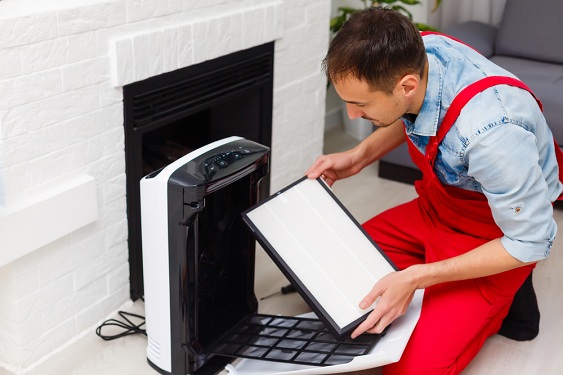
Now that we know which type of humidifier is best for your needs, you might wonder when to replace the filters on each one.
Central humidifiers: A central humidifier installed in your home’s air conditioning system should have its filter cleaned or changed monthly, as bacteria or mold could easily spread throughout the entire property.
Some models include reusable filters that can be cleaned using warm water and mild soap, while others require replacement filters from the manufacturer.
Evaporator/Cool Mist Humidifiers: Such humidifiers have a recommended filter replacement every 3 months – or once per month if used daily.
Warm Mist/Vaporizer Humidifiers: depending on the type of humidifier you buy, your filter may need to be replaced every month or two – or not at all.
Steam-based humidifiers often don’t include filters because the boiling water into steam kills organics and eliminates minerals from the water vapor.
Instead, these units require cleaning the heating elements that tend to trap minerals and biological residue. Warm water with a bit of vinegar is usually enough.
Ultrasonic humidifiers: most ultrasonic humidifiers are equipped with a water filter that needs to be changed every three months or every month if used daily. If the filter has been noticeably damaged or worn out, replace it entirely and start the cleaning cycle again.
CONCLUSION
Now you know how frequently you need to clean and/or change the filters in each major type of humidifier. This is an important input when considering what type to buy.
Talk to your primary care physician for advice on which humidifier would be best for you, particularly if you have existing health conditions.
With any major purchase, be sure to research each type of air purifier and its counterparts, the level of maintenance required for each machine, and any additional warranty offered by your merchant or the manufacturer.
Also, make sure you follow the instructions for using your humidifier correctly.
I’m a degreed ME (mechanical engineer) who is passionate about machines of all kinds. I created MachineWonders.com as a way to connect with others who love machines like me – or need help choosing one for their needs, application, or situation.

